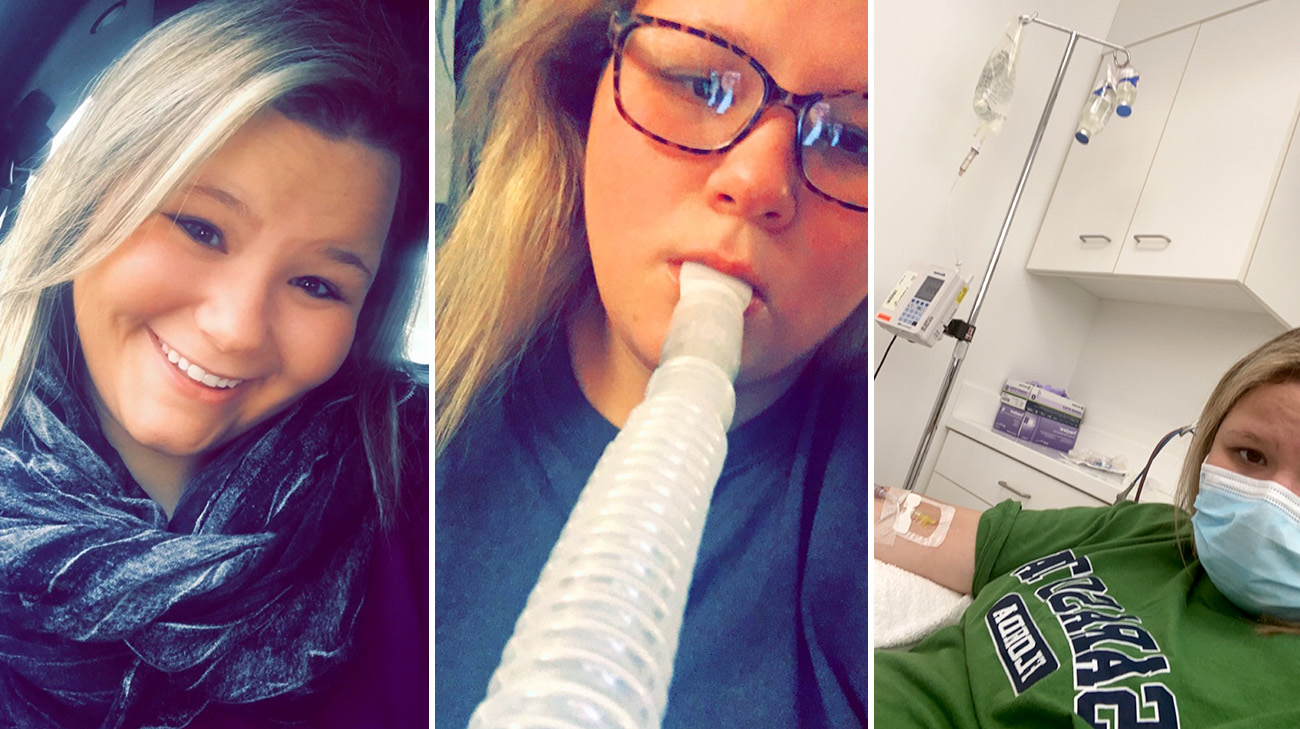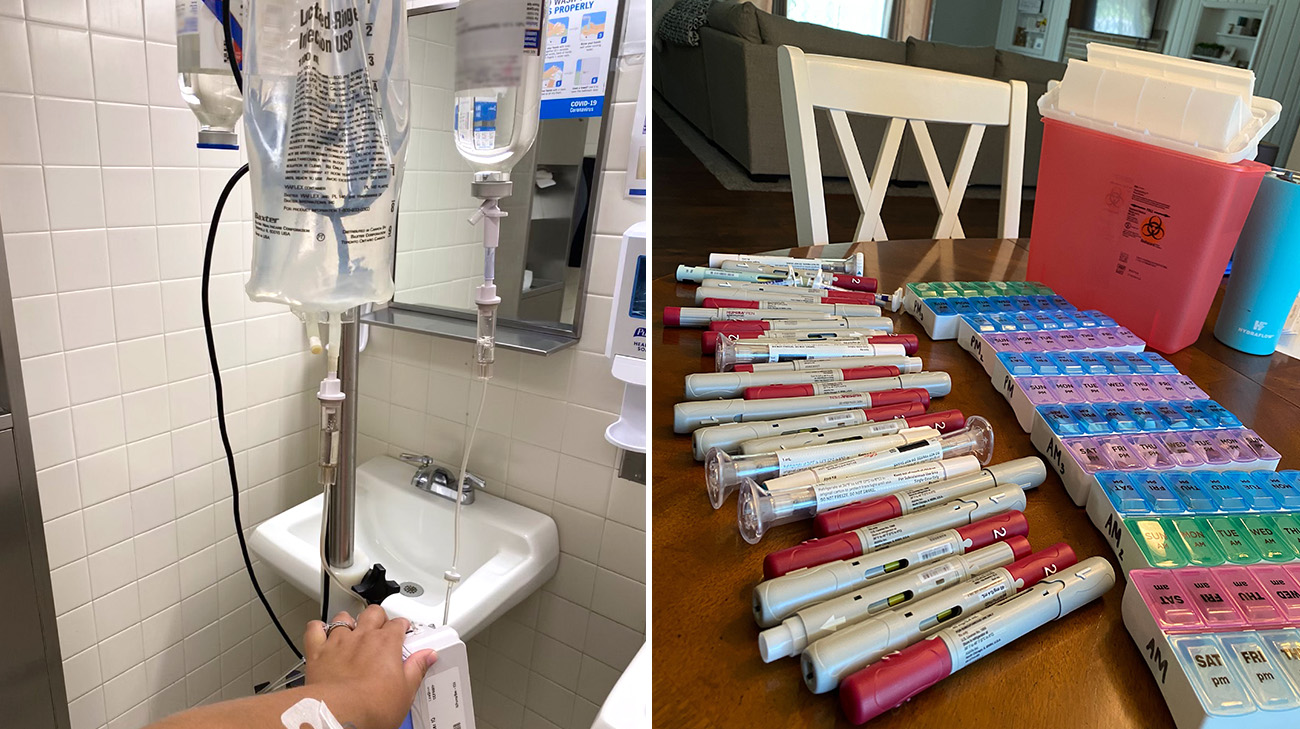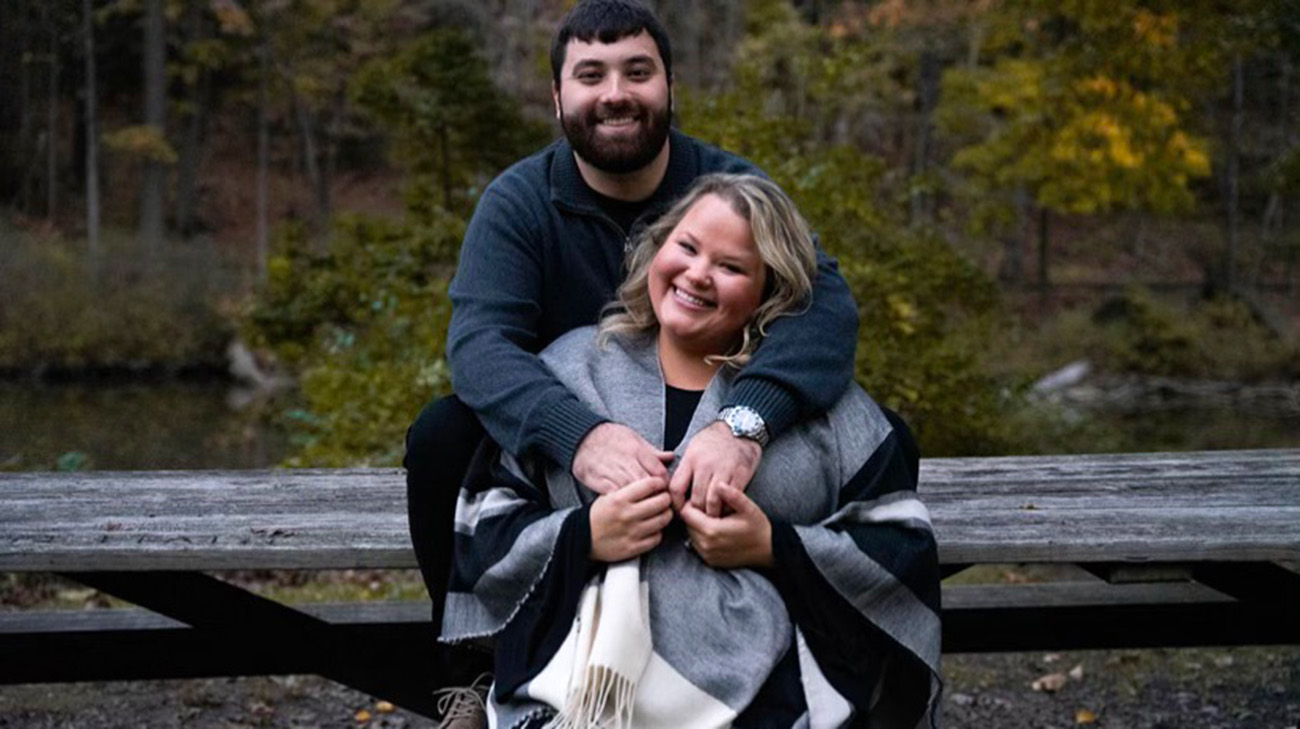
At age 26, Samantha Leszkowicz was the youngest member of her Cleveland Clinic support group for patients with long-haul COVID-19. However, she’s had one of the longest standing battles with the condition, having contracted COVID-19 in March 2020. Frustratingly, she continues facing challenges, and her list of medical conditions related to the disease continues growing two and half years later.
“Before all this, I was 24 years old and living my best life,” says Samantha, who lives in Brecksville, Ohio, with her husband, Ryan, and rescue dog, Zeena. “But COVID was like a cement truck hit me head-on. And I keep getting sicker. I’ll come home after every doctor’s appointment crying. There seems to be no answers.”
The majority of patients who have COVID-19 are typically impacted for a few weeks with relatively mild symptoms, such as fatigue and shortness of breath, before their health is slowly restored. However, the 7.5% of U.S. adults who are long-haulers can face a much more daunting prognosis. Often, like Samantha, they battle the effects of the disease a year or more after contracting it.
As a result, patients with long-haul COVID may struggle with their mental health, too, leading to bouts of depression and anxiety. That prompted staff psychologists in Cleveland Clinic’s Center for Adult Behavioral Health to establish and facilitate a six-week support group program, conducted virtually, for these patients.

Samantha continues dealing with chronic pain, fatigue, migraines, asthma and other issues she's had to manage as a result of long-haul COVID. (Courtesy: Samantha Leszkowicz)
According to Kia-Rai Prewitt, PhD, one of the psychologists who developed and leads one of the support groups, the program plays a vital role in helping Samantha and other patients cope with the devastating long-term effects of COVID-19.
“Our focus is to help them connect with those who have similar problems, so they don’t feel like they are the only one dealing with it,” says Dr. Prewitt. “Long-haul COVID can take a heavy toll on patients’ mental health. Sharing strategies for dealing with the disease can really help them as they try to adjust to their new normal.”
In late March 2020, Samantha took off from work because she was fatigued and thought she might have a cold. As each day passed, her symptoms worsened. Soon after testing positive for COVID-19, she went to the emergency room where she was diagnosed with and treated for double pneumonia.
Although never hospitalized, Samantha has made countless visits to Cleveland Clinic in the ensuing two and a half years, consulting with more than two dozen specialists as her condition and symptoms have evolved. A few of the many include collapsed lung, chronic pain, debilitating fatigue, asthma, migraines and muscle and joint pain.
Often, she can only manage to get out of bed to go to the bathroom. Her husband or mother will have to help her with basic day-to-day activities. Some days are better than others, but Samantha has rarely felt like herself. “Some days, I’ll get a burst of energy, but then I’ll relapse, with all of the same symptoms. It seems the more I do, the worse I get.”

Samantha hopes her symptoms and lingering conditions will subside so she can restore some sense of normalcy with her husband, Ryan, and their dog, Zeena. (Courtesy: KM Creatives)
During the support group sessions, Samantha is able “to connect the dots. Listening to other people’s stories was validating. These are people who have been through the same thing and understand what I’m going through.”
The demand to join a long-haul COVID support group is so high, says Dr. Prewitt, participants are limited to six, 75-minute meetings. After the six-week cohort ends, there is an option to rejoin if there is space available. “There’s a real need for more interventions like this,” she adds. “Unfortunately, due to judgment from others, patients doubt themselves, but long-haul COVID is real.”
Samantha encourages people with long-haul COVID to be proactive in seeking alternative treatment options and keep searching for answers. “Hopefully, this will just be a bump in the road, and if you stay strong you’ll figure it out.”
Related Institutes: Neurological Institute, Respiratory Institute

